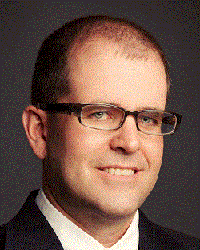 Brian Paciotti has always been interested in science and research, but he is also passionate about anthropology.
Brian Paciotti has always been interested in science and research, but he is also passionate about anthropology.
“Healthcare analytics is part of anthropology,” he says. “If you’re going to use data to make better decisions you first have to understand the particular workflows related to how care is provided, and that often involves an ethnographic analysis of how culture impacts the behavior of patients, doctors and administrators.” He explains that once data are contextualized, it’s possible to use statistical and data-mining approaches to create meaningful and actionable information.
Paciotti, an instructor in the Healthcare Analytics Program, teaches because he believes that analytics done properly can lower costs, improve access and reduce medical errors.
How did you become interested in healthcare analytics?
I became interested in health analytics while working for a state agency that profiled the quality of hospitals in the state. I learned that administrative data could be used to evaluate healthcare quality—looking at the quality of data and analyzing it carefully can save patient lives.
Why is healthcare analytics important?
Healthcare analytics is important because health care in the United States is somewhat broken. We have the most expensive system in the world, yet our outcomes with regards to who gets the right care at the right time is not always the best. In addition, our country is debating how to either expand or reduce healthcare access for our citizens. These decisions, and the more local day-to-day decisions among leaders within provider organizations and plans, need to be based on actionable information and knowledge. Data—properly analyzed—can provide this information.
Describe a moment where, as a teacher, you had an impact on a student’s life.
I was once told that it would not be easy—and maybe impossible—to teach programming to students in an online environment, especially to students with non-programming backgrounds. However, I have had non-programmers come to my courses and actually learn strong programming skills! And they have been grateful for the challenging, yet positive environment in which they learned these skills. These students now feel like they can talk to programmers with more rigor and confidence. Learning new skills, especially complex ones is not easy. I feel great knowing that my courses actually result in important new skills that will really help my students.
